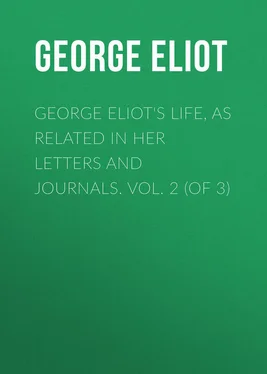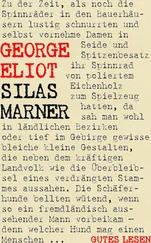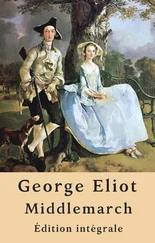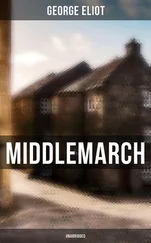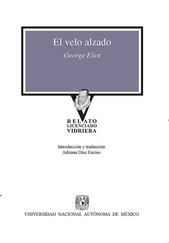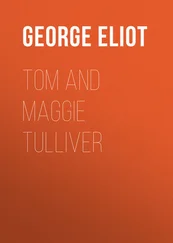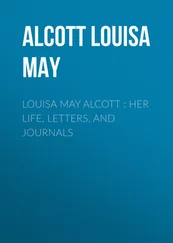George Eliot - George Eliot's Life, as Related in Her Letters and Journals. Vol. 2 (of 3)
Здесь есть возможность читать онлайн «George Eliot - George Eliot's Life, as Related in Her Letters and Journals. Vol. 2 (of 3)» — ознакомительный отрывок электронной книги совершенно бесплатно, а после прочтения отрывка купить полную версию. В некоторых случаях можно слушать аудио, скачать через торрент в формате fb2 и присутствует краткое содержание. Издательство: Иностранный паблик, Жанр: literature_19, foreign_antique, foreign_prose, на английском языке. Описание произведения, (предисловие) а так же отзывы посетителей доступны на портале библиотеки ЛибКат.
- Название:George Eliot's Life, as Related in Her Letters and Journals. Vol. 2 (of 3)
- Автор:
- Издательство:Иностранный паблик
- Жанр:
- Год:неизвестен
- ISBN:нет данных
- Рейтинг книги:3 / 5. Голосов: 1
-
Избранное:Добавить в избранное
- Отзывы:
-
Ваша оценка:
- 60
- 1
- 2
- 3
- 4
- 5
George Eliot's Life, as Related in Her Letters and Journals. Vol. 2 (of 3): краткое содержание, описание и аннотация
Предлагаем к чтению аннотацию, описание, краткое содержание или предисловие (зависит от того, что написал сам автор книги «George Eliot's Life, as Related in Her Letters and Journals. Vol. 2 (of 3)»). Если вы не нашли необходимую информацию о книге — напишите в комментариях, мы постараемся отыскать её.
George Eliot's Life, as Related in Her Letters and Journals. Vol. 2 (of 3) — читать онлайн ознакомительный отрывок
Ниже представлен текст книги, разбитый по страницам. Система сохранения места последней прочитанной страницы, позволяет с удобством читать онлайн бесплатно книгу «George Eliot's Life, as Related in Her Letters and Journals. Vol. 2 (of 3)», без необходимости каждый раз заново искать на чём Вы остановились. Поставьте закладку, и сможете в любой момент перейти на страницу, на которой закончили чтение.
Интервал:
Закладка:
George Eliot
George Eliot's Life, as Related in Her Letters and Journals. Vol. 2 (of 3)
CHAPTER VIII
Journal, 1858.
Jan. 2. – George has returned this evening from a week's visit to Vernon Hill. On coming up-stairs he said, "I have some very pretty news for you – something in my pocket." I was at a loss to conjecture, and thought confusedly of possible opinions from admiring readers, when he drew the Times from his pocket – to-day's number, containing a review of the "Scenes of Clerical Life." He had happened to ask a gentleman in the railway carriage, coming up to London, to allow him to look at the Times , and felt quite agitated and tremulous when his eyes alighted on the review. Finding he had time to go into town before the train started, he bought a copy there. It is a highly favorable notice, and, as far as it goes, appreciatory.
When G. went into town he called at Nutt's, and Mrs. Nutt said to him, "I think you don't know our curate. He says the author of 'Clerical Scenes' is a High Churchman; for though Mr. Tryan is said to be Low Church, his feelings and actions are those of a High Churchman." (The curate himself being of course High Church.) There were some pleasant scraps of admiration also gathered for me at Vernon Hill. Doyle happening to mention the treatment of children in the stories, Helps said, "Oh, he is a great writer!"
I wonder how I shall feel about these little details ten years hence, if I am alive. At present I value them as grounds for hoping that my writing may succeed, and so give value to my life; as indications that I can touch the hearts of my fellow-men, and so sprinkle some precious grain as the result of the long years in which I have been inert and suffering. But at present fear and trembling still predominate over hope.
Jan. 5. – To-day the "Clerical Scenes" came in their two-volume dress, looking very handsome.
Jan. 8. – News of the subscription – 580, with a probable addition of 25 for Longmans. Mudie has taken 350. When we used to talk of the probable subscription, G. always said, "I dare say it will be 250!" (The final number subscribed for was 650.)
I ordered copies to be sent to the following persons: Froude, Dickens, Thackeray, Tennyson, Ruskin, Faraday, the author of "Companions of my Solitude," Albert Smith, Mrs. Carlyle.
On the 20th of January I received the following letter from Dickens:
Letter from Charles Dickens to George Eliot, 17th Jan. 1858.
"My dear Sir, – I have been so strongly affected by the two first tales in the book you have had the kindness to send me, through Messrs. Blackwood, that I hope you will excuse my writing to you to express my admiration of their extraordinary merit. The exquisite truth and delicacy, both of the humor and the pathos of these stories, I have never seen the like of; and they have impressed me in a manner that I should find it very difficult to describe to you, if I had the impertinence to try.
"In addressing these few words of thankfulness to the creator of the Sad Fortunes of the Rev. Amos Barton, and the sad love-story of Mr. Gilfil, I am (I presume) bound to adopt the name that it pleases that excellent writer to assume. I can suggest no better one: but I should have been strongly disposed, if I had been left to my own devices, to address the said writer as a woman. I have observed what seemed to me such womanly touches in those moving fictions, that the assurance on the title-page is insufficient to satisfy me even now. If they originated with no woman, I believe that no man ever before had the art of making himself mentally so like a woman since the world began.
"You will not suppose that I have any vulgar wish to fathom your secret. I mention the point as one of great interest to me – not of mere curiosity. If it should ever suit your convenience and inclination to show me the face of the man, or woman, who has written so charmingly, it will be a very memorable occasion to me. If otherwise, I shall always hold that impalpable personage in loving attachment and respect, and shall yield myself up to all future utterances from the same source, with a perfect confidence in their making me wiser and better. – Your obliged and faithful servant and admirer,
"George Eliot, Esq."
Journal, 1858.
Jan. 21. – To-day came the following letter from Froude:
Letter from J A. Froude to George Eliot, 17th Jan. 1858.
"Northdown House, Bideford, 17th Jan. 1858 .
"Dear Sir, – I do not know when I have experienced a more pleasant surprise than when, on opening a book parcel two mornings ago, I found it to contain 'Scenes of Clerical Life,' 'From the author.' I do not often see Blackwood ; but in accidental glances I had made acquaintance with 'Janet's Repentance,' and had found there something extremely different from general magazine stories. When I read the advertisement of the republication, I intended fully, at my leisure, to look at the companions of the story which had so much struck me, and now I find myself sought out by the person whose workmanship I had admired, for the special present of it.
"You would not, I imagine, care much for flattering speeches, and to go into detail about the book would carry me farther than at present there is occasion to go. I can only thank you most sincerely for the delight which it has given me; and both I myself, and my wife, trust that the acquaintance which we seem to have made with you through your writings may improve into something more tangible. I do not know whether I am addressing a young man or an old – a clergyman or a layman. Perhaps, if you answer this note, you may give us some information about yourself. But at any rate, should business or pleasure bring you into this part of the world, pray believe that you will find a warm welcome if you will accept our hospitality. – Once more, with my best thanks, believe me, faithfully yours,
J. A. Froude."Letter to Miss Sara Hennell, 17th Jan. 1858.
I have long ceased to feel any sympathy with mere antagonism and destruction; and all crudity of expression marks, I think, a deficiency in subtlety of thought as well as in breadth of moral and poetic feeling. Mr. William Smith, the author of "Thorndale," is an old acquaintance of Mr. Lewes's. I should say an old friend , only I don't like the too ready use of that word. Mr. Lewes admires and esteems him very highly. He is a very accomplished man – a bachelor, with a small independent income; used to write very effective articles on miscellaneous subjects in Blackwood . I shall like to know what you think of "Thorndale." I don't know whether you look out for Ruskin's books whenever they appear. His little book on the "Political Economy of Art" contains some magnificent passages, mixed up with stupendous specimens of arrogant absurdity on some economical points. But I venerate him as one of the great teachers of the day. The grand doctrines of truth and sincerity in art, and the nobleness and solemnity of our human life, which he teaches with the inspiration of a Hebrew prophet, must be stirring up young minds in a promising way. The two last volumes of "Modern Painters" contain, I think, some of the finest writing of the age. He is strongly akin to the sublimest part of Wordsworth – whom, by-the-bye, we are reading with fresh admiration for his beauties and tolerance for his faults. Our present plans are: to remain here till about the end of March, then to go to Munich, which I long to see. We shall live there several months, seeing the wonderful galleries in leisure moments. Our living here is so much more expensive than living abroad that we save more than the expenses of our journeying; and as our work can be as well done there as here for some months, we lay in much more capital, in the shape of knowledge and experience, by going abroad.
Читать дальшеИнтервал:
Закладка:
Похожие книги на «George Eliot's Life, as Related in Her Letters and Journals. Vol. 2 (of 3)»
Представляем Вашему вниманию похожие книги на «George Eliot's Life, as Related in Her Letters and Journals. Vol. 2 (of 3)» списком для выбора. Мы отобрали схожую по названию и смыслу литературу в надежде предоставить читателям больше вариантов отыскать новые, интересные, ещё непрочитанные произведения.
Обсуждение, отзывы о книге «George Eliot's Life, as Related in Her Letters and Journals. Vol. 2 (of 3)» и просто собственные мнения читателей. Оставьте ваши комментарии, напишите, что Вы думаете о произведении, его смысле или главных героях. Укажите что конкретно понравилось, а что нет, и почему Вы так считаете.
